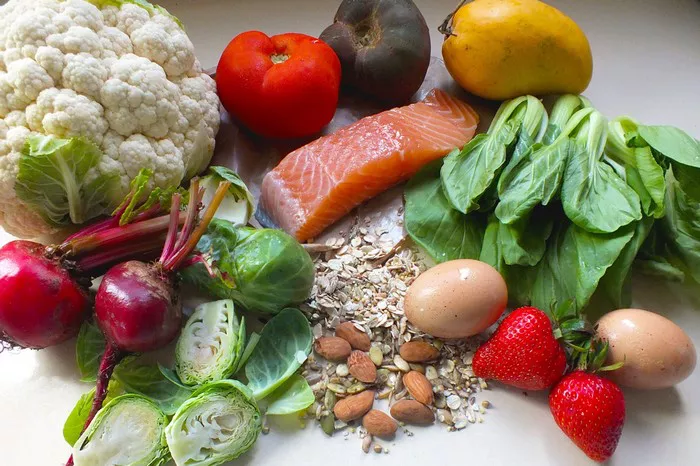In the pursuit of a healthy body and a desired physique, many people are constantly on the lookout for the best fat burning diet. With a plethora of diet plans available in the market, each claiming to be the most effective in shedding unwanted fat, it can be quite overwhelming to make an informed choice. The concept of a fat burning diet isn’t just about reducing calorie intake but also involves optimizing the body’s metabolism, hormonal balance, and nutrient utilization to encourage fat loss while maintaining muscle mass and overall health. In this extensive essay, we will explore various popular and scientifically-backed fat burning diets, delving into their principles, nutritional components, potential benefits, drawbacks, and how they can be tailored to different individual needs.
The Mediterranean Diet
Principles and Components: The Mediterranean diet is inspired by the traditional eating patterns of countries bordering the Mediterranean Sea, such as Greece, Italy, and Spain. It emphasizes whole, minimally processed foods. The foundation of this diet is built on an abundance of fruits, vegetables, whole grains, legumes, nuts, and seeds. Olive oil is the primary source of fat, used for cooking and dressing salads. It is rich in monounsaturated fats, which have been associated with numerous health benefits, including heart health and potentially aiding in fat loss.
Fish and seafood are consumed regularly, providing high-quality protein and healthy fats like omega-3 fatty acids. Poultry, eggs, and dairy products like yogurt and cheese are included in moderation. Red meat is eaten sparingly, typically limited to a few times a month. Wine, usually red wine, is consumed in moderation with meals, with its antioxidants and potential cardiovascular benefits being considered.
Nutritional Profile
Macronutrients: The Mediterranean diet typically consists of a balanced distribution of macronutrients. Roughly 40% to 60% of calories come from carbohydrates, mainly in the form of complex carbs from whole grains, fruits, and vegetables. About 20% to 30% of calories are from fats, with a focus on healthy unsaturated fats like those from olive oil, nuts, and fish. Protein makes up around 15% to 20% of calories, sourced from a variety of plant and animal foods.
Micronutrients: It is rich in vitamins such as vitamin C from fruits, vitamin E from nuts and olive oil, and various B vitamins from whole grains and legumes. Minerals like potassium from fruits and vegetables, calcium from dairy products, and magnesium from nuts and whole grains are also abundant. The diet’s high fiber content from whole foods helps with digestion and can contribute to feelings of fullness, reducing overall calorie intake.
How It Promotes Fat Burning
Satiety and Calorie Control: The high fiber and healthy fat content in the Mediterranean diet make it very filling. Foods like whole grains, nuts, and vegetables take longer to digest, keeping you satisfied for longer periods and reducing the likelihood of overeating or snacking on high-calorie, processed foods. This natural calorie control can lead to a calorie deficit over time, which is essential for fat loss.
Metabolic Health: The monounsaturated fats in olive oil and the omega-3 fatty acids from fish have been shown to improve insulin sensitivity. Better insulin sensitivity means the body can more effectively regulate blood sugar levels and utilize glucose for energy instead of storing it as fat. Additionally, these healthy fats support a healthy metabolism, allowing the body to burn calories more efficiently.
Hormonal Balance: The diet’s balanced macronutrient profile and focus on whole foods can help regulate hormones related to appetite and fat storage. For example, the fiber can slow the release of hormones like ghrelin (the hunger hormone), while the nutrients in the diet support the proper functioning of hormones such as leptin (which signals satiety).
Considerations and Drawbacks
Wine Consumption: While moderate red wine consumption is a part of the traditional Mediterranean diet and may have some health benefits, it’s important to note that not everyone should or can consume alcohol. For those with alcohol-related health issues, a history of addiction, or certain medical conditions, this aspect of the diet needs to be skipped.
Food Availability and Preparation: Depending on where you live, some of the traditional Mediterranean ingredients like fresh, local fish and certain types of produce may not be as readily available or affordable. Additionally, preparing meals from scratch with whole foods can be time-consuming compared to relying on processed convenience foods.
Initial Adjustment: For some people, transitioning to a diet rich in whole foods and reducing processed food intake can be challenging. The taste and texture of whole grains, for example, may take some getting used to if you’re accustomed to refined carbohydrates.
Considerations and Drawbacks
Hunger and Initial Adjustment: During the fasting periods, especially in the beginning, it’s common to experience hunger. This can be challenging to overcome, and some people may find it difficult to stick with the fasting schedule. It takes time to adjust to the new eating pattern and for the body to adapt to using stored fat for energy.
Overeating Risk: When the eating window arrives, there’s a risk of overeating to compensate for the fasting period. This can undo the potential benefits of the fasting and even lead to weight gain if calorie intake consistently exceeds what the body needs. Careful attention to portion sizes and food choices during eating windows is crucial.
Conclusion
The best fat burning diet is not a one-size-fits-all solution but rather a combination of nutrient-dense foods, strategic macronutrient intake, and dietary strategies that promote a calorie deficit while supporting metabolic health. By incorporating a variety of fat-burning foods, staying hydrated, and considering dietary strategies like high-protein diets and intermittent fasting, individuals can create a personalized approach to weight loss that is both effective and sustainable.
Related Topics:



























